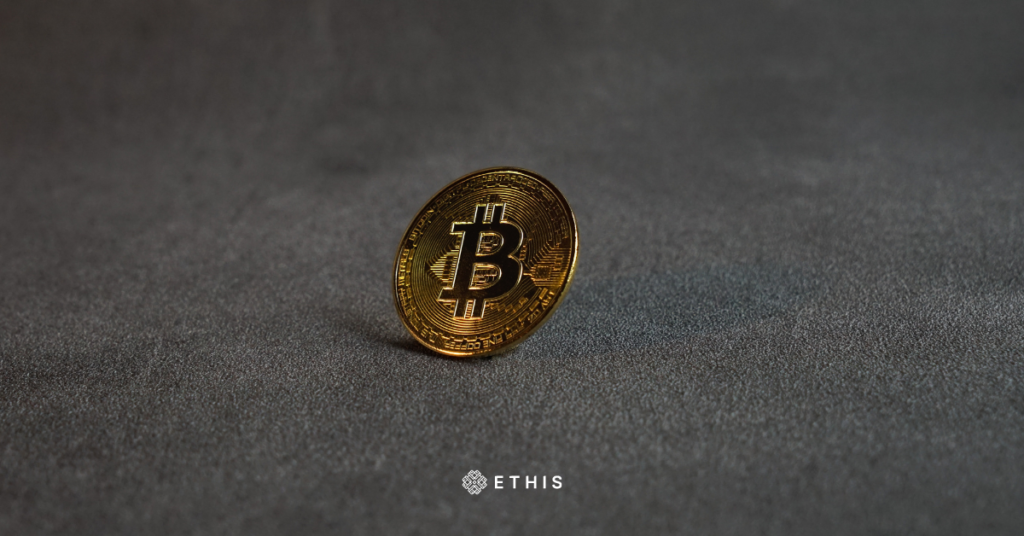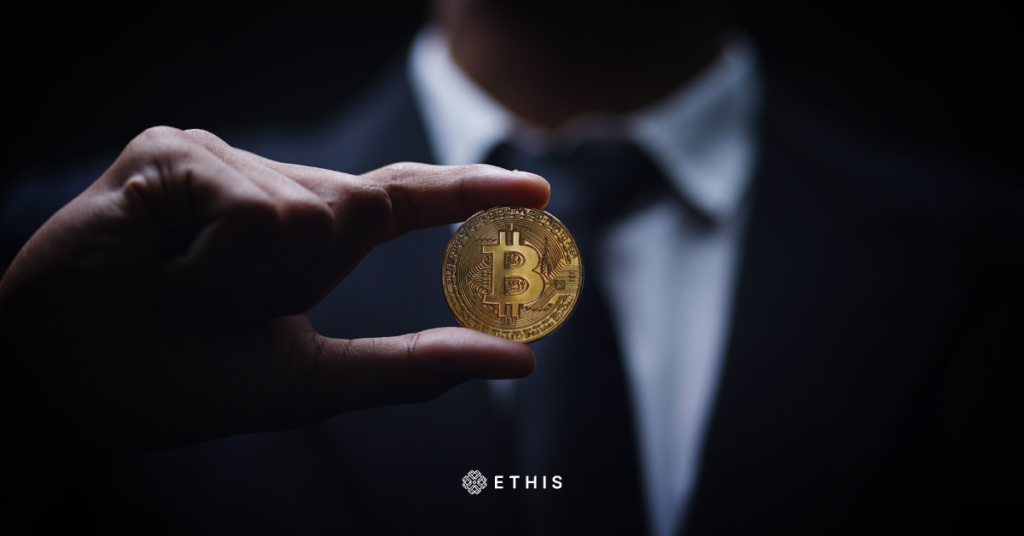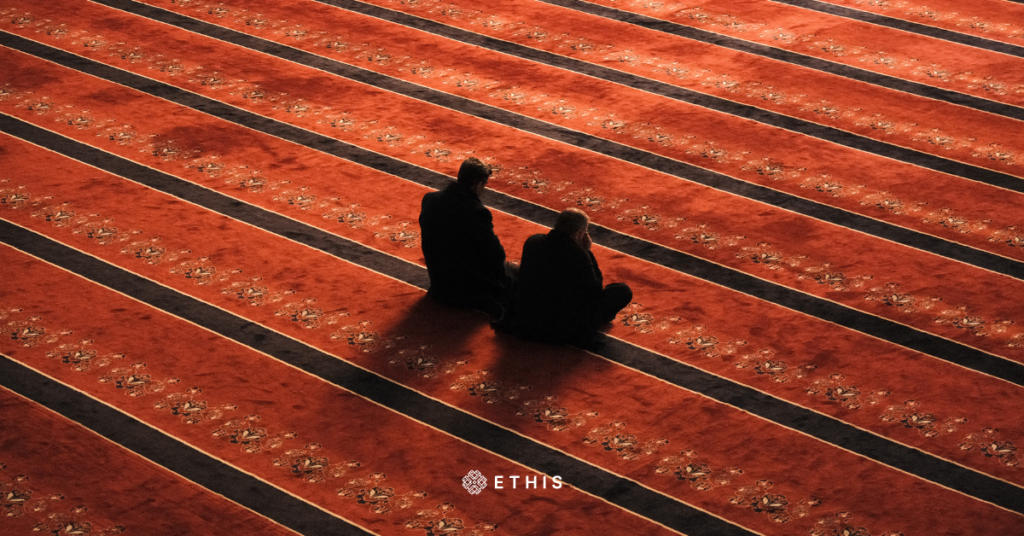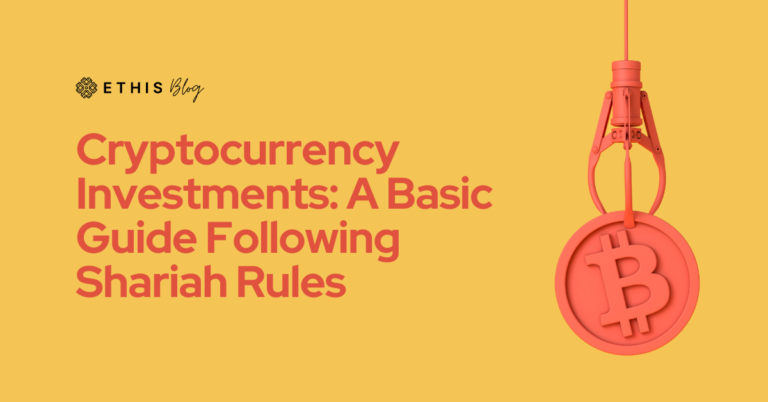
By Abdul-Samad bin Saadi (CPIF) – Digital assets, specifically Bitcoin and cryptocurrencies (cryptos), have become increasingly prevalent as new drivers for wealth creation in recent years. A rise in digital exchange platforms, both centralised and decentralised, have made access to cryptocurrency investments easier for retail investors and traders alike, facilitating rapid global participation in this nascent market through the internet.
The promise of creating “life-changing wealth” is as old as time, with crypto markets being the latest innovation and vehicle to draw the attention of individuals and institutions alike in pursuing high returns from an emerging sector.
Given that cryptos are being touted as potential replacements for the existing fiat system currently in place, discussions and debates amongst the Shariah scholars, academics and practitioners should serve as catalysts for providing clear guidelines for Muslims when considering participating either as investors or traders in the crypto markets.
Views and opinions on cryptocurrencies
There are naturally mixed views and opinions about whether cryptos are Shariah-compliant, with different jurisdictions taking different stances based on their respective religious frameworks and rulings.
For example, the Shariah Advisory Council (SAC) of the Securities Commission Malaysia has ruled that specific cryptos are permissible as assets for investment and trading. In contrast, Indonesia’s Majlis Ulama (the Council of Ulama) has prohibited cryptos due to having elements of uncertainty (gharar) and gambling (maysir).
As laymen, we ought to accept both perspectives as valid and given due respect taking into account the comprehensive and robust rule-making process required by Islamic jurisprudence. After all, differences in opinions enrich the discourse on matters of Shariah, and we believe there is wisdom behind each ruling made by the learned scholars.
While debates and discussions on cryptos are ongoing, it is worth going back to the basics of financial transaction rules to provide a broad base for Muslims to keep when considering whether to invest or trade in this market. As someone interested in this space for many years, I took the opportunity during the COVID-19 pandemic to get involved in crypto investment and trading to have a hands-on practical understanding of how the market operates.
Related: Crypto Assets: Halal or Haram?
Basic framework for crypto investments and trading
Through this, I also tested a basic framework of rules based on Shariah principles to guide how I approach investing and trading in cryptos. The objective was to see how easy it would be to follow these rules and how I could help demystify some aspects of the market to help other Muslims who may wish to participate but do not know how.
I hope this practical guide will help Muslims who may not have the knowledge or exposure to Shariah rules of financial transactions to navigate the crypto markets and avoid elements that may lead to activities that are inconsistent or incongruent with the Shariah, wherever possible.
The following is the basic framework of the rules based on the Shariah principles, which I put together as a simple guide:
- General Rules: Avoid these transactions and activities which may lead to (or involve):
- Riba or interest.
- Maysir or gambling.
- Gharar fahish or excessive uncertainty.
- Where the underlying assets are used for primarily non-compliant with the Shariah principles (e.g, pornography, alcohol, etc.)
Basic trading on cryptocurrency investments: what to know


For those who wish to become retail traders in the crypto markets, it is advisable to follow the rules for sarf (currency exchange) to avoid being involved with riba (interest) when executing trade transactions. Despite the lack of consensus regarding the nature of cryptos as akin to fiat currencies, it is better to take precautions and adopt a conservative approach by following the Shariah rules for financial transactions. As such, I would observe the following rules:
- Exchange of assets only on a spot basis (all exchanges offer spot trading platforms)
- The value of the assets being exchanged to be based on the prevailing market price at spot value (i.e., no delay in delivery or receipt of one or both assets)
- Avoid trading futures (on some exchanges, these are known as “perpetual” contracts”)
- Avoid trading derivatives
- Conduct due diligence and research on the nature of the assets for exchange to avoid trading cryptos that may not be Shariah-compliant
- Use technical analysis and risk management before entering into trades (otherwise, this may be akin to gambling and excessive speculation)
Shariah view on crypto investment and trading
While supporting contracts in Islamic Finance (such as wa’d or “unilateral promise”) enable futures trading for hedging, these activities are usually regulated and only applicable in certain jurisdictions. Furthermore, based on my experience, there are currently no centralised exchanges of note that offer Shariah-compliant futures or derivatives that any Shariah advisory committees have approved. However, some exchanges claim to offer “Islamic” trading accounts. I would suggest taking these claims with a pinch of salt.
Generally speaking, trading cryptos is similar to trading stocks and shares. While the traditional markets have stock-screening criteria and lists of Shariah-compliant stocks to help traders and investors in their asset selection, crypto markets do not have such a mechanism for the time being, at least not officially.
There have been efforts by various independent parties to classify whether specific cryptos are Shariah-compliant or not, most notably by Islamic Finance Guru (IFG). Still, we have yet to see formal criteria and lists set by regulatory authorities for the time being.
Related: Is Bitcoin Investment Halal?
Cryptocurrency investments rules


To determine how to invest in a Shariah-complaint manner, we must first understand the types of investments offered concerning the crypto markets. Since this is an essential guide for beginner-level retail investors (i.e., individual investors), I will exclude sophisticated assets such as Exchange-Traded Funds (ETFs) and investment trusts as access to these instruments usually require greater knowledge and understanding. I will also exclude Investments through decentralised finance (DeFi) for a similar reason.
Hence the guide will focus mainly on offerings by centralised exchanges. Aside from Bitcoin, I will not mention specific exchanges or cryptos as this guide is for education only.
For basic investments, generally, retail investors will have the following options available across most centralised exchanges:
Buy and HODL (this is a crypto-specific term that is simply a misspelling of the word “hold”)
- Buying and HODLing crypto assets allow retail investors to accumulate targeted assets and build wealth through capital appreciation. This is a mid to long-term approach to wealth accumulation, and the usual investment strategy is to Dollar Cost Average (DCA) investments through regular asset purchases to average the cost for purchasing over a period of time.
- A typical example of DCA is to invest periodically, say $100, and accumulate the asset over time.
- DCA can be optimised by adopting a “Buy-The-Dip” tactic where investors can use technical analysis to guide their investment decisions to accumulate “undervalued” assets and optimise their portfolio.



Buy and Stake
- Staking is an activity where investors commit a portion of their digital assets in exchange for returns.
- There are many types of staking, but most can be identified according to one of 3 broad categories: Fixed Staking, Flexible Staking, and Soft Staking (the terms may differ from one exchange to another).
| Fixed Staking | Flexible Staking | Soft Staking | |
| Description | Digital assets are “locked” for a fixed time within a staking pool. Depending on the conditions of staking, investors may not be able to “unlock” their assets before the end of the staking period. In other cases, investors may be able to “unlock” their assets by incurring penalties which are usually the forfeiture of the earned amount of assets (returns)The returns from fixed staking are generally higher than from flexible staking | Digital assets are not “locked” for a fixed time within a staking pool. Depending on the conditions of staking, investors may or may not be able to redeem their assets immediately. In most cases, there is a 24-hour “release” time before the assets are available for the investor to use. The returns from flexible staking are usually lower than from fixed staking | Digital assets are kept on exchanges and earn passive rewards (normally interest) in spot wallets (no participation in staking pools). Investors can use the assets at any time without any penalties or minimum “release” periodsReturns from soft staking vary from one exchange to another, with some offering higher returns for the same assets compared to other exchanges; some returns may even be higher than rewards from fixed staking. Only a handful of exchanges offer soft-staking |
| Staking Types | “Vanilla” fixed staking (rewards for holding assets on exchanges)Liquidity pools staking (committing digital assets to provide liquidity for exchanges); this is also known as “yield farming”Nodes staking (for Proof-of-Stake cryptos in securing and managing blockchain networks) | “Vanilla” flexible staking (rewards for holding assets on exchanges)Liquidity pools staking (committing digital assets to provide liquidity for exchanges); this is also known as “yield farming.” Nodes staking (for Proof-of-Stake cryptos in securing and managing blockchain networks) | “Vanilla” soft staking (rewards for holding assets on exchanges) |
| Possible Shariah Issues | Firstly, the term “interest” is typically used to describe the returns for staking. In practice, and depending on the smart contracts governing each staking pool, some of these returns may be closer to profits or fees. In some cases, the returns from the staking pool are in the form of different assets from the staked underlying assets. However, most staking provides returns in the form of “interest,” where the returns are the same as the underlying staked assets. If the underlying assets are recognised as currencies in the same sense as the existing fiat currencies are, there may be a potential issue with “interest income” or riba. Such income may violate the rules for sarf (currency exchange). However, suppose the underlying digital assets are not deemed as currencies but merely commodities that are NOT the equivalent of ribawi items (staple commodities that are the equivalent to currencies). In that case, as long as the digital asset is Shariah-compliant, the returns may be acceptable (subject to further analysis of how each staking pool generates returns). For ease of understanding, fixed and flexible staking may be crudely deemed analogous to investment accounts, fixed deposits, or term deposits, though there are several differences. | As soft staking does not involve actively committing to a staking pool compared to fixed or flexible staking, it is argued that there is no element of investment involved. Instead, the digital assets are kept in spot wallets on exchanges akin to custodian-based accounts in financial institutions (i.e., regular savings accounts). Unlike fixed and flexible staking, there is much less effort involved in the due diligence process for selecting which staking pool to “invest” in. Similar to the case in fixed and flexible staking, if the assets are recognised as currencies in the same sense as the existing fiat currencies are, there may be a potential issue with “interest income” or riba. Such income may violate the rules for sarf (currency exchange). However, suppose the digital assets are not deemed as currencies but merely commodities that are NOT the equivalent of ribawi items (staple commodities that are the equivalent to currencies). In that case, as long as the digital asset is Shariah-compliant, the returns may be acceptable (subject to further analysis of how the soft staking earnings are generated). For ease of understanding, soft-staking may be crudely deemed analogous to basic savings accounts or demand deposits, though there are several differences. |
Initial Exchange Offerings (IEOs)
- Similar to Initial Coin Offerings (ICOs). However, these cryptos are offered through centralised exchanges instead of direct offerings to investors.
- Investors can purchase newly listed cryptos through IEOs, usually projects thoroughly evaluated and verified by the exchanges, providing a layer of comfort and security.
- With IEOs, investors can choose to immediately sell the assets through the exchange’s market or keep to hold as an investment with the expectation of profiting from possible capital gains in the future.
- If the exchange offers a staking pool for the newly listed cryptos, investors may also decide to stake their new digital assets for a more extended period.
In considering what makes a digital asset Shariah-compliant, investors need to read the whitepapers for each of their targeted cryptos and understand their “tokenomics.”
However, this may require knowledge of technical jargon to understand and may not be feasible for beginner investors. Another way to “self-screen” these assets would be to look at the activities within the respective crypto ecosystems and their utilities. Some cryptos are used for gaming which may involve gambling activities. Others may be used for bridging ecosystems.
Related: Should Cryptocurrency be Shariah Screened?
Cryptos are used for building out Layer 2 solutions to solve scaling and network speed issues. Some cryptos have been adopted by payment systems and accepted by some merchants for retail transactions. Several cryptos are used purely for what is called “yield farming.” This is to say that the sole purpose is to stake or lend out digital assets in exchange for higher returns or rewards, either the same crypto as the underlying or different crypto that is being offered by the pool.
I avoid participating in yield farming, especially if it involves “stablecoins,” which may be deemed as “fiat adjacents” or “fiat substitutes.” Though strictly speaking, stablecoins are not fiat equivalents. Their purpose is to provide a digital representation of the fiat currency against which it is valued through reserves backed by the actual currency and currency equivalents such as promissory notes and treasury bonds. Stablecoins are presently the closest equivalent to a Central Bank Digital Currency (CBDC), a critical focus topic at central banks.
Cryptocurrency investments: A Shariah perspective


While there is no definitive list of Shariah-compliant assets published by regulatory bodies, investors looking for cryptos that comply with Shariah may wish to consider keeping their selection criteria simple. They can do this by avoiding assets involved in prohibited activities such as gambling, interest, and activities where there is excessive uncertainty in what they do. Another aspect to consider is whether the digital asset’s activities create positive value or benefits.
This could include crypto projects that aim to improve payment systems by making them faster and more secure. Or other projects that aim to support the preservation of cultures (for example, the Global Heritage Fund aims to use Non-Fungible Tokens or NFTs to help their efforts in culture preservation).
Another valuable type of crypto investment is node staking, where investors stake their assets with node validators to help secure the blockchain network. This can be deemed as being similar to investing through crowd-funding. The challenge here is to ensure that the returns are generated in compliance with Shariah principles.
I hope that this basic guide is helpful for those who wish to participate in the crypto markets. The guide is merely the first step, however, and is meant to provide prospective investors and traders with food for thought with respect to Shariah rules for financial transactions before deciding to invest or trade in cryptos.
Note for readers: This is for education only and should not be construed as financial advice.





Top Posts
Islamic P2P Crowdfunding Explained
Halal Money Matters: How Muslims Can Balance Deen and Dunya with Smart Islamic Finance
Halal Investments for Singapore Muslims? It’s time for a shake-up in the Islamic Investments scene.
Smart investment for making Halal money
3 Reasons Why Property Crowdfunding is the Smart Investment for You